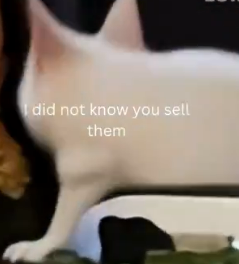Before the advent of Dream Machine, the absolute leader in the field of generative video models was the famous Sora from OpenAI, but Dream Machine has an undeniable advantage - it is accessible to a wide range of users, here and now. And it even offers to generate 30 videos per month for free. For example, just yesterday, right after reading the news about the model presentation, I started generating a video using the simplest prompt: “Panda typing on a typewriter sitting at the table near the sea.” The result is here and it’s damn impressive. At least to my untrained eye, the video looks just as good as Sora’s. And whenever there is a new free tool, there is always a desire to do something cool with its help. “Memes are considered an important part of Internet culture that spreads by means of imitation,” Boris Eldagsen comments. “Representing an idea, they have no fixed form and circulate as mutations, parodies, remixes. As such, the animation of a meme image is a logical development.” “So, the better question is: Is an animated meme legal? A long time, it has been debated if memes deserve fair use protection or if they are copyright infringement. One argument pro “fair use” was that memes are “transformative” (that is, giving novel meaning or expression or a new context to the original work). Animated memes fulfill this criteria for sure. From a 4s (25 frames per second) animation, only the first frame is taken from somebody or somewhere else. The remaining 96 frames are AI-generated and as such “hallucinated”. Is this legal or not? We don’t know. The area of legal uncertainty caused by AI is growing constantly.” Follow Bored Panda on Google News! Follow us on Flipboard.com/@boredpanda! Please use high-res photos without watermarks Ooops! Your image is too large, maximum file size is 8 MB.

































